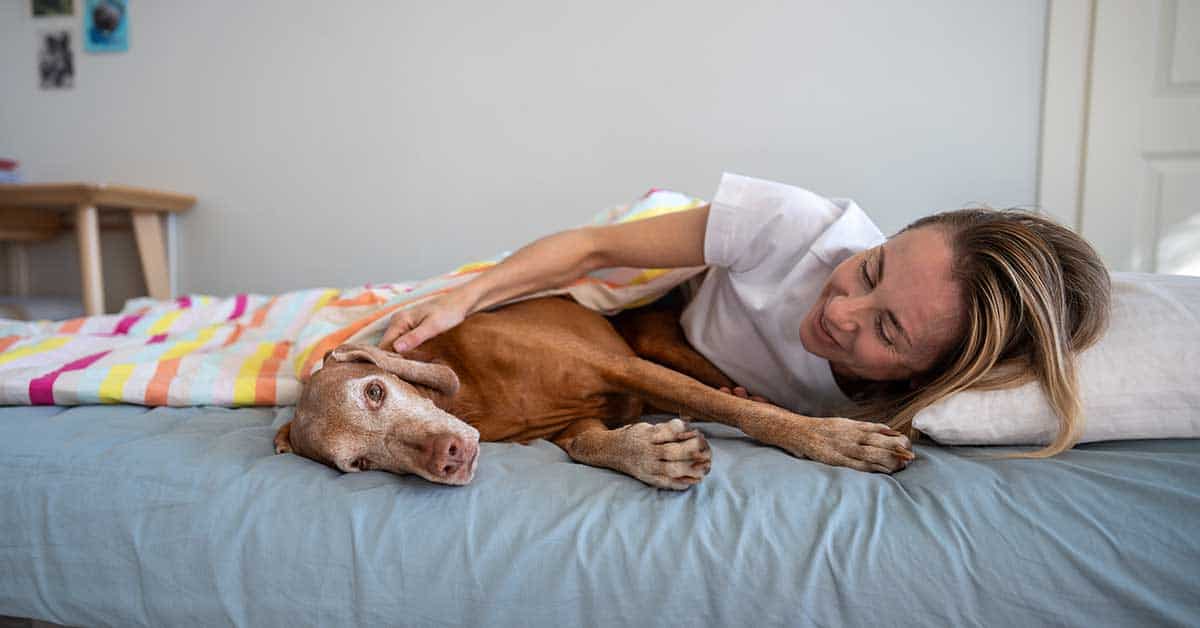Table of Contents
When we talk about the emerging field of pet hospice, we are diving into a compassionate revolution in pet care that is both necessary and deeply humane. Pet hospice acknowledges that our beloved animals deserve dignity and comfort in their final days, just as much as any human. This movement is about more than just medical care it’s a holistic approach that includes the heart and soul of the experience, often involving pet doulas and animal psychics who guide families through these profoundly difficult decisions. Gone are the days of seeing pet euthanasia as the only option when an animal is terminally ill. Today, pet hospice opens up a doorway to alternative end-of-life care that many are finding to be a more peaceful, natural path.
Understanding Pet Hospice Care
Learn how pet hospice services, including doulas and psychics, support families during tough end-of-life decisions for pets. – What is pet hospice? It’s a compassionate approach to end-of-life care that prioritizes comfort for pets and support for their families. – What is a pet doula? A pet doula is a trained professional who provides emotional support and guidance to families navigating the dying process of their pets. – How to cope with pet loss? Coping strategies include seeking support from pet loss hotlines, joining support groups, and allowing yourself to grieve in a healthy way.
What is pet hospice?
Pet hospice is an end-of-life program designed to keep pets comfortable and at home during their final weeks or days. The goal is to provide a peaceful, natural death, much akin to palliative care for humans. This involves managing pain and ensuring that the pet’s quality of life is as high as possible until the end.
In my own experience, when my old Labrador, Max, was diagnosed with terminal cancer, I was faced with a daunting decision. Traditional approaches would have had me opt for immediate euthanasia, but a friend introduced me to the concept of pet hospice. This allowed Max to spend his remaining days in the comfort of his home, surrounded by familiar smells and the people who loved him most. It was a revelation a gentle bridge between life and death that honored his existence and our bond.
The Emergence and Growth
The concept of pet hospice is gaining traction as pet owners increasingly see their pets as integral family members. According to a 2023 survey by the American Pet Products Association, 67% of American households own a pet, and the emotional attachment to these pets continues to deepen. Pet hospice taps into this bond, offering a way to extend it with dignity and compassion during the most challenging times.

Insider Tip: Dr. Mary Gardner, co-founder of Lap of Love Veterinary Hospice, suggests creating a “bucket list” of activities for your pet to enjoy in their final days, helping to create lasting memories.
What is a pet hospice program?
A pet hospice program is a structured approach to end-of-life care that encompasses medical treatment, emotional support for the pet and owner, and logistical assistance with the process of dying. These programs are often tailored to the individual needs of the pet, taking into account their specific health issues, personality, and the preferences of the pet owner.
Components of a Program
- Pain Management: Ensuring the pet remains pain-free is crucial. This might involve medication, acupuncture, or massage therapy.
- Diet and Nutrition: Special dietary needs are addressed, ensuring the pet maintains as much strength and comfort as possible.
- Emotional Support: Counseling services for owners to help them cope with the impending loss.
- Aftercare Planning: Guidance on decisions after the pet passes, including memorial options.
Pet hospice programs are not just about the pet; they are about the family unit. When my neighbor’s cat, Whiskers, was nearing the end, their hospice program included regular visits from a pet doula who not only cared for Whiskers but also provided much-needed emotional support to the family. This holistic approach validated their grief and prepared them for the inevitable, making the transition more bearable.
Link: For more insights on how pet doulas work within hospice programs, see The Rise of Pet Doulas.
What is a pet doula?
A pet doula serves as a guide and support system for both the pet and the family during the animal’s last days. They play a vital role in the pet hospice process, providing emotional, logistical, and sometimes spiritual support.
Duties of a Pet Doula
- Emotional Comfort: Offering support to family members, helping them cope with grief and stress.
- Logistical Assistance: Aiding in medication management, coordinating with veterinarians, and preparing the family for what to expect.
- Legacy Projects: Helping families create lasting memories, such as paw print keepsakes or photo albums.
- Spiritual Guidance: For those who seek it, some doulas offer spiritual insights or rituals to honor the pets life.
I once met a pet doula named Sarah, who helped a friend through the loss of her aging beagle, Rufus. Sarah’s presence was calming and reassuring. She guided them through each stage with compassion, making sure Rufus was comfortable and that his family felt supported and understood. It was as if Sarah held an invisible thread of strength, connecting the family and their beloved pet through those last tender moments.
Insider Tip: Many pet doulas are trained in animal behavior and grief counseling, making them uniquely equipped to handle both the pet’s and the owner’s needs.
What is a pet psychic?
Pet psychics, or animal communicators, claim to connect with animals on a mental or spiritual level, providing insights into their feelings and end-of-life wishes. While skeptics may question their legitimacy, many pet owners find comfort and closure in the services they provide.
The Role of a Pet Psychic
- Understanding Needs: Helping owners understand what their pets are feeling or needing.
- Guiding Decisions: Offering guidance on when it might be time to let go.
- Facilitating Communication: Acting as a bridge between pet and owner, often conveying messages that bring peace.
When my cousin faced the difficult decision of whether to continue treatment for her ailing cat, she consulted a pet psychic. The experience, she claimed, was enlightening. The psychic helped her discern that her cat was ready to transition, which provided her with the clarity and courage to make a compassionate decision.
Link: To explore how animal psychics work, visit Understanding Your Furry Friend: How an Animal Psychic Can Help.
How to find pet hospice services
Finding the right pet hospice service requires research and consideration of your pet’s needs and your personal preferences. Here are some steps to guide you:
Steps to Finding the Right Service
- Ask Your Veterinarian: Many vets are familiar with local hospice services and can recommend options.
- Research Online: Look for reviews and testimonials from other pet owners.
- Check Credentials: Ensure the service is staffed by qualified professionals with experience in end-of-life care.
- Interview Providers: Talk to potential hospice providers to understand their approach and services.
- Visit Facilities: If possible, visit the facility to ensure it feels right for your pet.
In my search for hospice care for Max, I found that speaking directly to several providers gave me a sense of their compassion and competence. Choosing someone who resonated with our family’s values made all the difference in the care Max received.
Insider Tip: Online communities and forums can be a valuable resource for recommendations and personal experiences with hospice services.
How much does pet hospice cost?
The cost of pet hospice can vary widely depending on the services and location. However, understanding the typical expenses can help you plan for this important journey.
Factors Influencing Cost
- Level of Care: Basic pain management versus comprehensive care packages.
- Location: Urban areas may have higher prices compared to rural locations.
- Duration: The length of time your pet requires hospice care.
- Additional Services: Inclusion of services like pet doulas or psychics.
On average, pet hospice can range from $500 to $1,500, depending on these variables. While the cost can be a concern, many find the peace of mind and comfort provided to be worth the investment. For a detailed breakdown of costs, see Pet Doula Services.
Insider Tip: Some pet insurance plans may cover part of hospice care, so it’s worth checking your policy or considering a plan that includes end-of-life care.
How to help a dying pet
Helping a dying pet involves more than just physical care; it’s about ensuring they feel loved and supported until the end. Here are some ways to assist your pet during their final days:
Ways to Provide Comfort
- Create a Comfortable Environment: Ensure your pet has a quiet, cozy space where they can rest.
- Maintain a Routine: Keeping a consistent schedule can provide a sense of normalcy.
- Be Present: Spend as much time as possible with your pet, offering affection and reassurance.
- Monitor Pain: Work with your veterinarian to manage any discomfort your pet might experience.
- Say Goodbye: Allow family members to say their farewells, creating a sense of closure for everyone involved.
During Max’s final days, we surrounded him with his favorite toys and blankets, played his favorite music, and kept him close. It was a bittersweet time, filled with love and gratitude for the years we shared.
Insider Tip: Aromatherapy with calming scents like lavender can be soothing for both pets and their owners during this time.
How to cope with pet loss
The loss of a pet can be devastating, leaving a void that is often underestimated by those who have never experienced it. Coping with this grief is a personal journey, but there are strategies that can help:
Coping Strategies
- Allow Yourself to Grieve: Acknowledge your emotions and give yourself permission to mourn.
- Seek Support: Join a support group for pet owners who are experiencing similar losses.
- Create a Memorial: Commemorate your pet’s life with a special tribute, such as a memorial garden or photo album.
- Talk About It: Share your memories and feelings with friends, family, or a counselor.
- Consider Volunteering: Giving back to animal shelters in your pets honor can be a healing way to keep their memory alive.
When Max passed, I found solace in creating a scrapbook of his life, filled with pictures and stories from our adventures together. It was a therapeutic process that allowed me to celebrate his life and the joy he brought into mine.
Link: For more support and resources, visit Healing Paws: How Pet Psychics and Doulas Work Together for Animal Wellness.
Conclusion
Pet hospice is more than just a trend; it is a vital evolution in the way we care for our animal companions. By embracing this compassionate approach, we honor the bond we share with our pets, ensuring their final days are filled with love, dignity, and comfort. This emerging field, supported by pet doulas and psychics, offers a holistic path through one of life’s most difficult transitions. It challenges us to rethink what it means to truly care for our pets, right up to the very end. Let us celebrate this shift and continue to advocate for the peaceful, natural death that all creatures deserve.
Frequently Asked Questions
Question: What is the role of pet doulas in pet hospice care?
Answer: Pet doulas support families by providing comfort and guidance during hospice.
Question: How can animal psychics help families during pet hospice?
Answer: Animal psychics offer insights that can ease families’ emotional burdens.
Question: Who should consider pet hospice for their ailing pets?
Answer: Families with terminally ill pets should consider hospice for compassionate care.
Question: What services do pet doulas provide to grieving pet owners?
Answer: Pet doulas offer emotional support, resources, and end-of-life guidance.
Question: How do pet hospice services improve the pet’s quality of life?
Answer: These services focus on comfort and minimizing suffering for terminal pets.
Question: Why might pet owners hesitate to choose hospice care for their pets?
Answer: Owners may fear the decision signifies giving up, but it truly offers peace.



